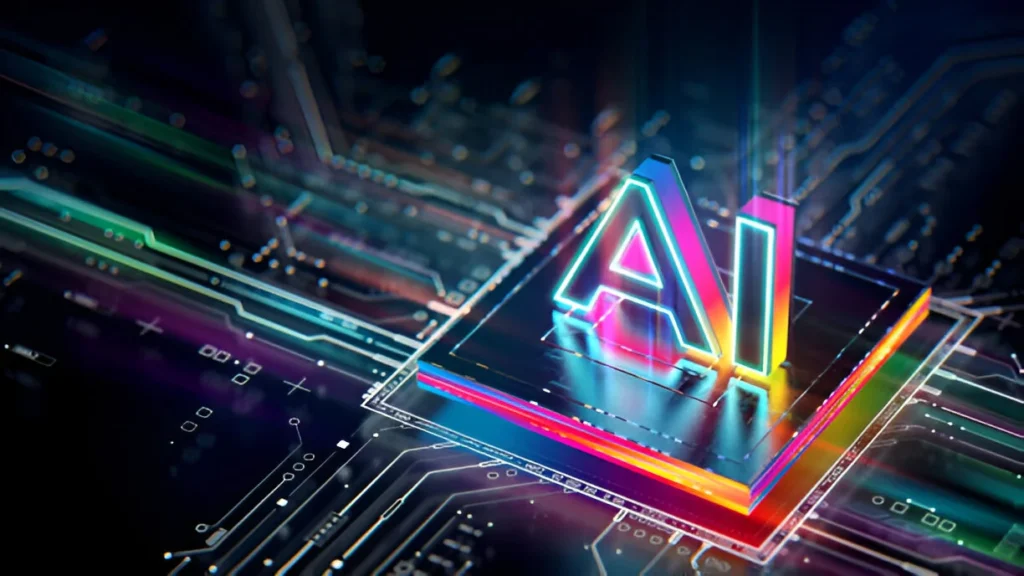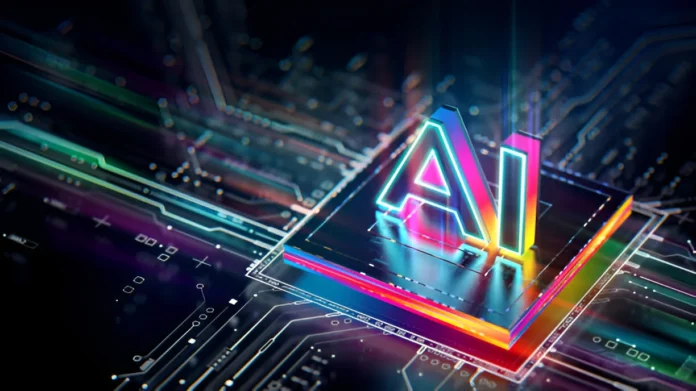- Introduction
- Definition of Artificial Intelligence (AI)
- Why AI is important in today’s world
- The Evolution of Artificial Intelligence
- Brief history of AI development
- Major milestones in AI evolution
- AI in Everyday Life
- AI in smartphones and smart devices
- Personal assistants like Siri, Alexa, and Google Assistant
- AI-driven social media algorithms
- AI in Healthcare
- How AI helps in medical diagnostics
- Use of AI in drug discovery
- AI’s role in personalized medicine
- AI in Business and Industry
- AI in automation and efficiency
- AI-driven customer service (chatbots, virtual assistants)
- Predictive analytics for business growth
- AI in Education
- How AI is transforming learning systems
- AI tutors and personalized learning experiences
- Use of AI to analyze student performance
- AI in Transportation
- Autonomous vehicles and self-driving technology
- AI’s role in traffic management and safety improvements
- AI in Finance
- AI algorithms in trading and investment
- Fraud detection and risk management
- AI in Entertainment
- AI in video games and content creation
- AI’s role in recommending personalized content on platforms like Netflix and Spotify
- AI and Privacy Concerns
- Data privacy issues related to AI
- Ethical considerations in AI-driven surveillance
- AI in the Workforce
- Job displacement due to AI automation
- New job opportunities created by AI technology
- The importance of upskilling for the future workforce
- AI and Environmental Impact
- AI in climate change monitoring and solutions
- Use of AI in energy optimization and resource management
- AI in Security and Cybersecurity
- AI for detecting and preventing cyber threats
- The role of AI in national security and defense
- The Future of Artificial Intelligence
- Potential advancements in AI technology
- The debate between AI benefits and risks
- Conclusion
- Summary of AI’s impact on different sectors
- The need for responsible AI development
- FAQs
- What industries benefit the most from AI?
- Can AI replace human jobs completely?
- What are the ethical concerns surrounding AI?
- How does AI improve healthcare outcomes?
- Will AI help address global challenges like climate change?
How Artificial Intelligence is Changing Our World
Introduction
Artificial Intelligence (AI) is no longer just a futuristic concept confined to science fiction. It’s rapidly becoming a fundamental part of our daily lives, revolutionizing industries and reshaping the way we interact with the world. But what exactly is AI? At its core, AI refers to the simulation of human intelligence by machines, enabling them to perform tasks that typically require human cognition, such as learning, problem-solving, and decision-making.

The importance of AI in today’s world cannot be overstated. From self-driving cars to personalized shopping recommendations, AI is playing a critical role in enhancing efficiency, improving services, and offering innovative solutions to complex problems.
The Evolution of Artificial Intelligence
AI has come a long way since its inception in the mid-20th century. The term was first coined in 1956 by John McCarthy, but it took decades of research and development to achieve significant milestones. Early AI systems were based on rule-based logic and could only perform simple tasks.
Fast forward to today, and we have AI systems capable of performing highly complex operations, such as diagnosing diseases, driving vehicles, and even composing music. Key milestones in AI development include the creation of IBM’s Deep Blue, which defeated chess grandmaster Garry Kasparov in 1997, and the more recent achievement of Google’s AlphaGo, which beat the world champion in the game of Go—a feat previously thought impossible for a machine.
AI in Everyday Life
AI is deeply integrated into the devices we use every day. Smartphones are equipped with AI-powered features like facial recognition, voice assistants, and real-time language translation. Popular personal assistants such as Siri, Alexa, and Google Assistant rely on AI to process natural language and execute commands, making it easier for us to manage our daily tasks.
Social media platforms also use AI algorithms to curate the content we see. These algorithms analyze our behavior, preferences, and interactions to deliver personalized feeds, ads, and recommendations, keeping us more engaged than ever before.
AI in Healthcare
One of the most promising applications of AI is in healthcare. AI is transforming the medical field by enabling faster and more accurate diagnostics. For instance, AI systems can analyze medical images like X-rays and MRIs to detect abnormalities with remarkable precision, often outperforming human radiologists.
In drug discovery, AI helps to accelerate the development of new medications by analyzing large datasets of chemical compounds and predicting which ones are most likely to be effective. Furthermore, AI is advancing personalized medicine by analyzing individual patient data to tailor treatments specific to each person’s unique genetic makeup.
AI in Business and Industry
Businesses are increasingly leveraging AI to streamline operations and improve customer experience. Automation powered by AI is reducing the need for repetitive tasks, allowing companies to increase productivity and cut costs. For instance, AI-driven customer service tools like chatbots and virtual assistants can handle a large volume of customer queries without human intervention, providing quick and efficient responses.
Predictive analytics is another powerful application of AI in business. By analyzing trends and patterns in data, AI can help companies make informed decisions, forecast market trends, and identify growth opportunities.
AI in Education
AI is also revolutionizing education by offering more personalized learning experiences. Intelligent tutoring systems can adapt lessons based on a student’s progress, providing targeted support to those who need it most. Additionally, AI can analyze large volumes of educational data to identify gaps in learning and recommend tailored strategies for improvement.
AI-powered platforms are also helping educators by automating administrative tasks, like grading, giving teachers more time to focus on teaching and student engagement.
AI in Transportation
The transportation industry is undergoing a major transformation thanks to AI. Autonomous vehicles, such as self-driving cars, use AI to interpret sensory data, navigate roads, and avoid obstacles, promising to reduce accidents caused by human error. In addition, AI is used in traffic management systems to improve road safety and reduce congestion by predicting traffic patterns and optimizing traffic flow.
AI in Finance
In the financial sector, AI algorithms are revolutionizing trading, investment, and risk management. AI-driven platforms can analyze market data in real-time to identify profitable trading opportunities and make more accurate predictions about market trends.
AI is also playing a critical role in fraud detection. By analyzing transaction patterns, AI systems can detect unusual activities that may indicate fraudulent behavior, protecting both financial institutions and their customers from potential losses.
AI in Entertainment
The entertainment industry is also feeling the impact of AI. In video games, AI helps create more realistic and challenging environments for players by simulating human-like behaviors in non-player characters (NPCs). Streaming platforms like Netflix and Spotify use AI algorithms to recommend content based on users’ preferences, making the entertainment experience more personalized.
In content creation, AI tools are being used to write scripts, generate music, and even create artwork, opening up new possibilities for creators and audiences alike.
AI and Privacy Concerns
While AI offers numerous benefits, it also raises concerns about privacy and ethics. Many AI applications, especially in surveillance and social media, rely on massive amounts of personal data to function effectively. This raises questions about data privacy, as users often have little control over how their data is collected and used.
Ethical concerns are also at the forefront of AI development. For example, AI-driven surveillance systems, while useful for security purposes, can lead to a loss of privacy and the potential for misuse by governments or corporations.
AI in the Workforce
AI is reshaping the workforce by automating many tasks that were once performed by humans. While this can lead to job displacement in certain sectors, it also creates new opportunities in AI development, data analysis, and other technology-driven roles. The key to thriving in an AI-dominated future is upskilling—learning new skills that complement AI technologies.
AI and Environmental Impact
AI is proving to be a valuable tool in the fight against climate change. AI systems can monitor environmental conditions in real-time, helping scientists predict natural disasters and develop strategies to mitigate their effects. Moreover, AI is being used to optimize energy usage in industries, homes, and cities, reducing waste and promoting sustainability. Read more about AI from here.
AI in Security and Cybersecurity
AI’s ability to detect patterns makes it an essential tool for cybersecurity. AI systems can analyze network traffic and detect anomalies that may indicate a cyber attack, allowing companies to respond swiftly to potential threats. In national security, AI is being used for surveillance, threat detection, and defense strategy development, enhancing the safety and security of nations worldwide.
The Future of Artificial Intelligence
As AI technology continues to advance, the possibilities are endless. From quantum computing to advanced robotics, AI has the potential to revolutionize every aspect of our lives. However, with these advancements come risks, including job displacement, ethical concerns, and the potential for AI to be used maliciously. The key will be to develop AI responsibly, ensuring that its benefits are maximized while minimizing its risks. You can read our WordPress Security article.
Conclusion
Artificial Intelligence is undeniably changing our world in profound ways. From healthcare to entertainment, transportation to finance, AI is making processes more efficient, enhancing services, and opening up new possibilities. However, with these advancements come challenges, particularly around ethics and privacy. As we move forward, it’s crucial to strike a balance between embracing AI’s benefits and addressing the potential risks, ensuring that AI is developed responsibly and ethically.
FAQs
- What industries benefit the most from AI? Industries like healthcare, finance, transportation, and entertainment are among the top sectors benefiting from AI technology.
- Can AI replace human jobs completely? While AI may automate certain tasks, it is unlikely to completely replace human jobs. Instead, it will reshape the workforce, creating new roles and opportunities.
- What are the ethical concerns surrounding AI? Ethical concerns include data privacy, the potential misuse of AI for surveillance, and the impact of AI on employment and social inequality.
- How does AI improve healthcare outcomes? AI helps by enabling faster and more accurate diagnoses, personalized treatments, and efficient drug discovery processes.
- Will AI help address global challenges like climate change? Yes, AI is being used to monitor environmental changes, optimize energy use, and develop solutions to mitigate the effects of climate change.


